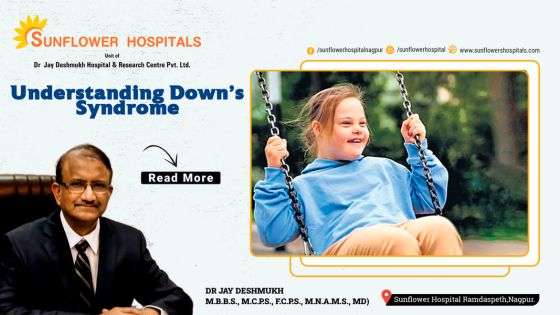What exactly is Down Syndrome?
Down Syndrome is genetic condition that occurs when a baby is born with three copies of chromosome 21 instead of two. This extra genetic material affects how the baby’s body and brain develop, leading to delayed development, intellectual disability, and distinct facial features.
Why is it called “Trisomy 21”?
Trisomy” means three copies. Since it involves three copies of chromosome number 21, the medical term is Trisomy 21.
How common is Down Syndrome?
It occurs in about 1 in every 700 live births worldwide. The risk increases with maternal age, especially after age 35.
What are the main types of Down Syndrome?
There are three types: Trisomy 21 (95%) -Every cell has 3 copies of chromosome 21. Translocation (4%) – An Extra chromosome 21 is attached to another chromosome. Mosaic (1%) – Some cells are normal, others have trisomy 21. Symptoms may be milder.
What causes it? Is it inherited?
In most cases, it’s a random event during cell division. It is not inherited. Only in translocation cases, it may run in families. Genetic counselling is useful in such cases.
Author: Dr Jay Deshmukh
Dr Jay Deshmukh is Chief Physician and Director, Sunflower Hospital, Nagpur Honorary Physician to Honorable Governor of Maharashtra and PondicherryCentral. Dr Jay Deshmukh is an M.B.B.S., M.C.P.S., F.C.P.S., M.N.A.M.S., MD From Internal Medicine – Bombay and New Delhi.


